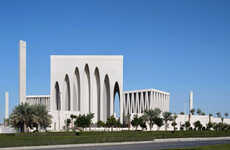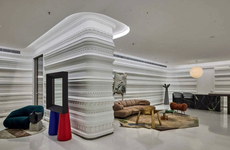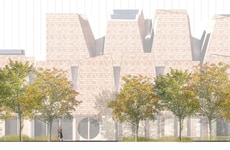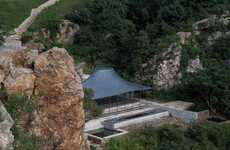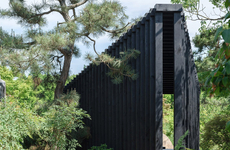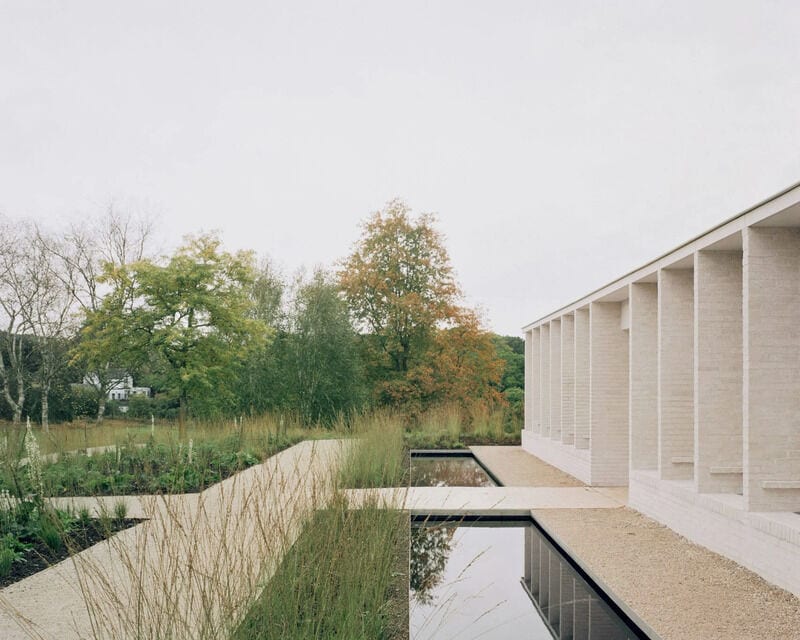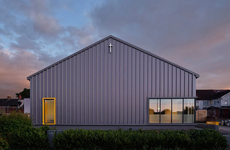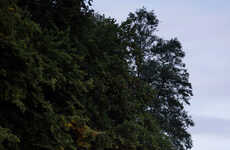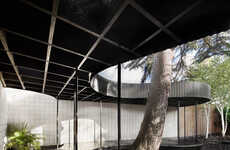
James Gorst Architects Designs a Non-Denominational Temple
Amy Duong — June 12, 2023 — Art & Design
References: jamesgorstarchitects & dezeen
British design studio James Gorst Architects designs a non-denominational temple complex located in Hampshire, UK. The building is defined by timber-framed pavilions that are attached by cloistered walkways. It is right in the village of Rake and is a space of quiet contemplation and physical connection to the landscape. The project was commissioned by White Eagle Lodge, which is a non-denominational multi-faith spiritual organization.
They had asked for a building that represents "peace and simplicity" with a focus on sustainability. The result has a rotunda temple, prayer chapels, a meeting space, and a library -- complete with a courtyard garden. Associate Steve Wilkinson notes that "Our aim was to create balance between the landscape, building and interiors, to form one coherent and harmonious design, exploring the relationship of the architecture to the spiritual context."
Image Credit: James Gorst Architects
They had asked for a building that represents "peace and simplicity" with a focus on sustainability. The result has a rotunda temple, prayer chapels, a meeting space, and a library -- complete with a courtyard garden. Associate Steve Wilkinson notes that "Our aim was to create balance between the landscape, building and interiors, to form one coherent and harmonious design, exploring the relationship of the architecture to the spiritual context."
Image Credit: James Gorst Architects
Trend Themes
1. Non-denominational Temples - Opportunity for designing inclusive religious spaces that cater to multiple faiths and emphasize peace and simplicity.
2. Timber-framed Pavilions - Potential for utilizing timber-framed structures in architectural designs to create visually appealing and sustainable buildings.
3. Multi-faith Spiritual Organizations - Growing demand for spiritual organizations that promote inclusivity and provide spaces for quiet contemplation and connection to nature.
Industry Implications
1. Architecture and Design - Innovative architectural approaches for building non-denominational temples and timber-framed structures can shape the future of religious and sustainable design.
2. Religious Services - Opportunity for multi-faith spiritual organizations to cater to individuals seeking non-denominational spaces for prayer, contemplation, and connection.
3. Sustainable Construction - Growing demand for sustainably designed buildings, driven by the need for environmentally conscious spaces for spiritual and communal activities.
1.9
Score
Popularity
Activity
Freshness


